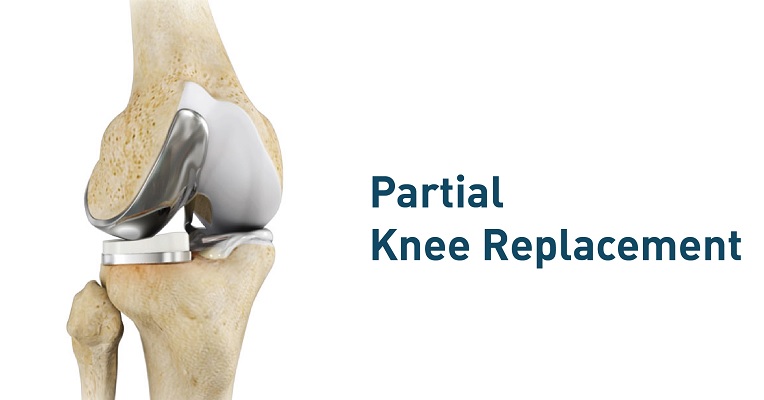A partial knee replacement in Delhi is a surgery that can be considered for the treatment of severe knee arthritis.
Traditionally, patients have undergone total knee replacements, placing a metal or plastic implant on them. Today, with innovative technology, total knee replacement is not necessary, usually a partial knee replacement is sufficient.
What is partial knee replacement?
Partial knee replacement is also known as the Oxford knee. The knee consists of three separate compartments and if only one compartment is damaged, partial knee replacement in West Delhi can be performed.
Your orthopaedic surgeon in Delhi will determine if you are a good candidate for this type of surgery or if you need a total replacement.
The idea of this surgery is to replace only the damaged part of the joint and leave the other healthy parts intact. Replacement can occur on the side (external) or medial (internal) of the knee.
Patients who are good candidates for this type of surgery must be over 55 years old, not obese and lead a relatively sedentary life.
In many cases arthritis is widespread and partial knee replacement is not possible. Damage to joint cartilage is so severe that this type of surgery cannot be performed. In this case orthopaedic in Dwarka recommends to replace a total knee.
If partial knee replacement in Delhi is performed for someone who is a poor candidate, the risk of failure is high. In this case a conversion to a total knee replacement is required.
Total or regional anesthesia is used.
What are the risks of partial knee replacement?
Risks of partial knee replacement include:
- Failure to comply with the procedure
- Fluid buildup in the knee
- Blood clots
- Nerves and damage to blood vessels
- Knee pain
- Sympathetic dystrophy reflects
What are the benefits of partial knee replacement?
This procedure is minimally invasive surgery. The advantages are:
- Faster recovery time
- Smaller incision
- Less blood loss
- Less pain
- More natural movement
What to expect after surgery?
The recovery time after this surgery is faster than for a total knee replacement. It varies, but you will usually be able to walk, drive and do all the things you did before two to three weeks after surgery.
Consult with your orthopaedic in Delhi, because the damage at this stage can lead to serious problems, causing surgery failure.
You will need physical therapy for four to six months after surgery. Your orthopedic in Delhi will also prescribe pain relievers, as you will have mild to moderate pain during your recovery time.
These implants showed a high success rate with results of 95% at age 15 and beyond.



No comments:
Post a Comment